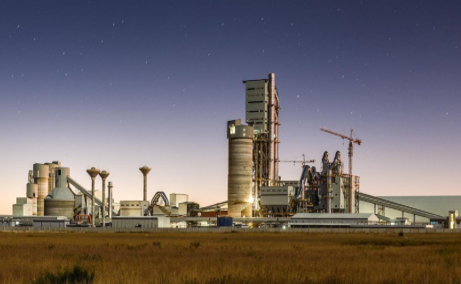|
Listen now
Getting your Trinity Audio player ready...
|
Some two years ago, a retail investor bought Dangote Cement stock on the optimism that it would rally, and a few months later his prognosis was correct as there was a monstrous rally in the shares of the building materials producer.
‘I was elated that l was going to sell high and make a lot of money,” the investor called Steve (to protect his identity for this story), told MoneyCentral.
“However, by early 2024, my hopes were shattered when I started having difficulty in selling my shares. It all started like a joke. I began to smell the stench of deceit when my stockbrokers Meristem Securities kept telling me that they had not found a buyer or a match for my sell order. This delay continued for several months, and unfortunately, Dangote Cement shares started falling and I was losing a lot of money,” Steve said.
Steve started sending his sell order out to his broker (Meristem) in April 2024, when Dangote Cement was selling at around N650 per share.
By the time the stockbroker sold his shares after several months of delay in August 2024, the shares had cratered to N487 per share and Steve had lost half of his investment in the stock, with total losses approaching N1 million.
“I was so disappointed and nearly lost confidence in the Nigerian stock market. I suspected something fishy, but nobody was willing to answer my questions. Could it be a manipulation of stock price to satisfy the whims and caprices of some people who were smiling to the bank at the expense of innocent investors?” Steve asked.
Many Nigerian listed companies have a relatively low free float compared to peers, often due to significant shareholding concentration in families or controlling groups, which limits liquidity and market depth.
MoneyCentral analysis shows the effective free float of Dangote Cement is much lower than the headline percentage rate, and the illiquidity in the stock is making it difficult for retail investors to exit positions in a timely manner.
Dangote Cement said it had a free float of about 13.17% as at February 2025, which is made up of shares not held by Dangote Industries Limited (DIL) and Aliko Dangote, the ultimate owner of DIL. Dangote Industries Limited owned 86.67% of the outstanding Dangote Cement’s 16.873 billion shares as at Feb. 2025, while Aliko Dangote owned 0.16%.
However, the available shares for trading is further reduced by stakes held by institutional investors. This includes a 5.41% stake by Stanbic IBTC Nominees Limited as at Feb. 2025 on behalf of its Pension Retirement Savings Accounts (RSAs), 243.45 million shares owned by the Investment Corporation of Dubai equivalent to a 1.44% stake and 128.56 million shares owned by GW Grey, Pte Ltd or a 0.76% stake.
Other institutional holders include Old Mutual Investment Group (Pty) Ltd, Vetiva Fund Managers Ltd, Eurizon Capital SA, Caixabank Asset Management SGIIC SA and Fideuram Asset Management (Ireland) DAC.
Index providers such as MSCI also hold Dangote Cement in its MSCI Nigeria Index, further reducing available free float.
MoneyCentral calculates that the effect of these would be to reduce Dangote Cements ‘effective free float’ to around 5%, reducing liquidity in the process.
A stock broker that MoneyCentral talked to said Dangote Cements’ free float is likely less than advertised, as founders and largest shareholders on the NGX, often own more shares than they disclose.
“Some of these founders in the market control their positions through proxy,” he said.
Another retail investor who bought into Dangote Cement early this year at around the N400 per share level is also struggling to exit his position.
“What kind of stock market are we running in Nigeria, ” he lamented.
” I have been trying to sell my Dangote Cement stock since its run up to around N600 per share but my brokers have been unable to find a buyer.”
Dangote Cement stock is up 33.88% in the past one-year and has a market capitalization of N10.12 trillion. It is the second most capitalized firm on the NGX, after BUA Foods.
Dangote Cement Share Buy-Back Programme
Dangote Cement shareholders approved the execution of a Share Buy-Back Programme at its Extraordinary General Meeting, held on 13th December, 2022.
A share buyback program, also known as a share repurchase, occurs when a company buys back its own outstanding shares from the market or directly from shareholders.
This reduces the number of shares available in the open market, effectively increasing the ownership proportion of remaining shareholders. Companies typically initiate buybacks when they believe their shares are undervalued, aiming to reward investors by boosting the stock price and earnings per share (EPS).
However, buybacks can be controversial if used to artificially inflate stock prices or if the funds might be better utilized elsewhere.
The Dangote Cement shares that were bought back totaled 166,948,153 and were successfully cancelled in the year 2024 with the Corporate Affairs Commission (CAC).
The public was notified of the cancellation of the ordinary shares (Treasury Shares) on 19th February 2025 through the NGX.
In July 2023, the Company successfully completed Tranche I of its second share buy-back programme, repurchasing 0.71% of the outstanding shares. The shares bought back are warehoused as treasury shares.
Before the share buyback, Dangote Cement had 17.040 billion shares outstanding which fell to 16.752 billion after the end of Programme II of the share buy-back programme.
NGX Relaxes Free Float Requirements in Contrast to Peers
The Nigerian Exchange (NGX) updated its free float requirements, with the main requirement being that companies must have a minimum free float market capitalization of at least N40 billion for premium board listings.
A minimum N40 billion free float capitalization for a N10 trillion firm like Dangote Cement with major long term institutional holders would greatly reduce liquidity in its shares available for trading.
In contrast, the major stock exchange in India, represented by the Nifty 50 index, has a considerably higher free float percentage. As of March 2025, Nifty 50 constituents have a combined free float market capitalization representing about 55.48% of the total market cap. This higher free float implies greater liquidity and broader public ownership in India’s markets.
For African peer South Africa, the FTSE/JSE Africa Index Series criteria require companies to have a minimum global free float of above 5%, with many major companies having free floats well above this threshold.
The average free float for the Johannesburg Stock Exchange (JSE) tends to be around 35%-40% or higher, reflecting greater public share dispersion compared to Nigeria.
Tight Control Via Low Free Float Increases Dangote Cement Corporate Governance Scrutiny
Another major issue that crops up from a tight ownership structure due to low free float of shares due to significant shareholding concentration in families or controlling groups such as Dangote Industries Limited (DIL), is the potential to abuse corporate governance standards.
Dangote Cement in 2024 obtained a loan of USD675,000,000 from the African Export–Import Bank (Afreximbank) and advanced the same amount to its parent company Dangote Industries Limited (DIL) owner of a newly constructed 650,000 barrels per day refinery, calling into question related party transactions at the cement manufacturer.
“The loan has a grace period of 24 months, with repayments to be done in quarterly equal instalments from the end of the grace period up to the maturity period of 60 months. Interest charged at Secured Overnight Financing Rate (SOFR) plus margin of 6.5% on the outstanding principal is payable quarterly. The loan is secured by an all assets debenture. This amount was advanced to Dangote Industries Limited (DIL) under similar terms and conditions,” Dangote cement said.
The loan was booked under Bank loans in Dangote Cements Full Year 2024 financials which had an outstanding balance of N1.261 trillion, according to data seen by MoneyCentral.
It is not known why DIL did not seek for the loan directly from a financier and put the transaction directly on its balance sheet.
The transaction was flagged as a Key Audit Matter by the firm’s Auditors KPMG. These are matters that were of most significance in the audit of the consolidated and separate financial statements of the current period.
Dangote Industries (DIL) had senior secured syndicated debt of USD2.0 billion at end-2024 (largely due in 2025 and 2026) and a USD1.65 billion loan from its ultimate parent, Greenview plc, classified as on demand debt, according to Fitch.
Fitch Ratings in February 2025 withdrew Dangote Industries Limited’s National Long-Term Rating and senior unsecured rating of ‘B+(nga)’, while maintaining them on Rating Watch Negative (RWN), over refinancing risk related to loans used to construct its 650,000 barrels per day refinery.




 Follow the MoneyCentral Nigeria channel on WhatsApp: Click here!
Follow the MoneyCentral Nigeria channel on WhatsApp: Click here!